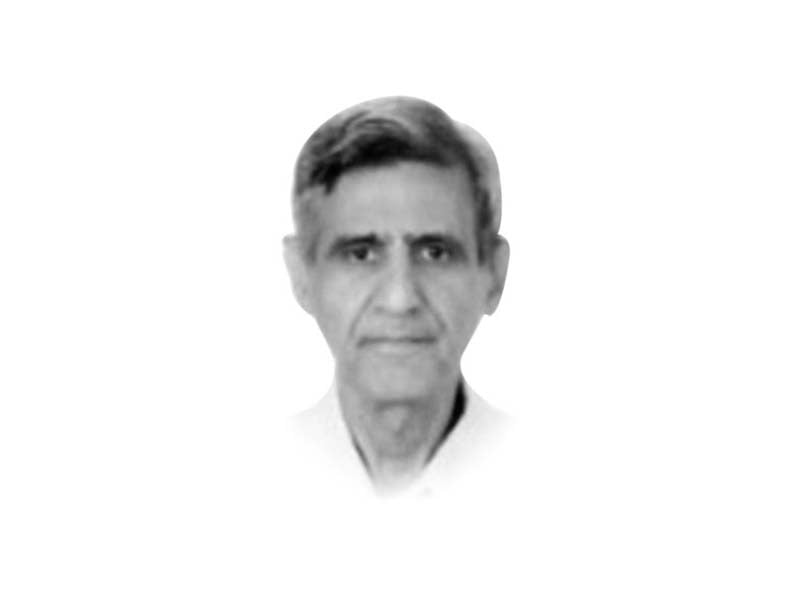
Departure beyond the borders of my country is for me equivalent to death. —Boris Pasternak
Pakistan on 14 August, perhaps for distinction, and India on 15 August, which is the actual date, go into the festivities of Independence Day celebrations every year with great fervour but both become insensitive and impervious to the colossal human sufferings that afflicted millions of people without distinguishing their cast, creed, race and religion. A centuries’ old coexistence abruptly turned into carnage, rape, loot and plunder on both sides of the border in Punjab and Bengal. Sir Cyril Radcliffe was both whimsical and imbecilic in mapping the boundaries. History books are replete with shameful human atrocities and barbarism unleashed during the mass migration of some fifteen million people forced to leave their places of birth to flee the gruesome dance of death. Some one million were annihilated while the others somehow escaped the blood thirsty predators, to carry the deep scars on their bodies and souls for the rest of their lives. I quote two couplets from a beautiful ghazal on hijrat (migration) to Pakistan by Fana Nizami Kanpuri:
Mai to ponhcha thokrain khata huwa
Manzilon per khizr ka charcha huwa;
Ghairat e ahle chaman ko kya huwa
Chhor aye ashiyan jalta huwa
India still has something to celebrate. They got rid of the British and an opportunity to efface the psyche of the much longer Muslim domination in India that had reached its zenith under the Mughal Empire. Their long burning desire of a puritanical Hindu state came to reality. Despite starting as a secular nation-state, India has gradually drifted to the philosophy of Hindutva, marginalising its minorities, especially the Muslims. Today even the educated and elite class of India have unfortunately been swayed by this popular sentiment and the grip of BJP is getting stronger and that of the other parties weaker, as Modi is rediscovering India long after Nehru. There are some healthy dissenting voices in India to be fair, but not audible enough in the crescendo of nationalism riding on the tide of fascism. India immensely benefitted by getting possession of the princely states by default as no meaningful discussion regarding their fate featured in the negotiations between the British, the Congress and the Muslim League. Geography favoured India, which coerced even those states that wanted to retain their independence. There were so many, but the names of Jammu and Kashmir and Hyderabad Deccan are enough to highlight their historical seizure soon after the partition. India these days is passing through an identity crisis. It is hell bent on resurrecting their epic periods of history — which is bound to result in chaos and failure. As George Orwell has said, “The most effective way to destroy people is to deny and obliterate their own understanding of their history.”
Pakistan’s dilemma of a separate homeland is much more convoluted. We are still adrift in uncharted waters and I can simply quote a few verses by Faiz Ahmad Faiz from his poem Subh-e-Azadi written in 1947 to lessen my emotional burden:
Ye daag daag ujala ye shab gazeeda sahar
Vo intezar tha jis ka ye vo sahar to nahin;
Kahin to hoga shabe-sust mauj ka sahil
kahin to ja ke ruke ga safeena-e gham-e dil
For us the sun stopped rising from the East when it became Bangladesh in December 1971. They were the torchbearers of the Pakistan movement and chose to disunite for reasons well documented in Justice Hamood ur Rehman Commission’s report. My heart filled with shame and disgust when I heard the late Indira Gandhi claiming after the severance of East Pakistan, that India has drowned the two-nation theory in the Arabian Sea. Bitter but true!
Despite not getting its due share in lands and resources, Pakistan had to surrender its ego also. The Subcontinent was ruled by the Muslims for many hundred years, reaching its glorious era under the Mughals. We have made mockery of our freedom acquired in 1947. To be honest, we could not gel as a nation in 75 years and are increasingly at loggerheads with each other on ethnic and sectarian divisions. Economically we are bonded slaves today, holding with pride an atom bomb in one hand and a begging bowl, with brazenness, in the other. My heart bleeds at the thought of those people on the other side of the border, who are almost as many as we are in Pakistan. But haven’t they lost their freedom and subsistence, because we left them in dire straits and reached ourselves ashore in 1947? This verse by Iftikhar Arif articulates the plight of the Indian Muslims:
Mitti ki mohabbat mai (un) ashufta saron nai
Woh qarz utarai hain jo wajib bhi nahin thay
Published in The Express Tribune, August 29th, 2022.
Like Opinion & Editorial on Facebook, follow @ETOpEd on Twitter to receive all updates on all our daily pieces.


1730959638-0/trump-(19)1730959638-0-165x106.webp)











COMMENTS (2)
Comments are moderated and generally will be posted if they are on-topic and not abusive.
For more information, please see our Comments FAQ